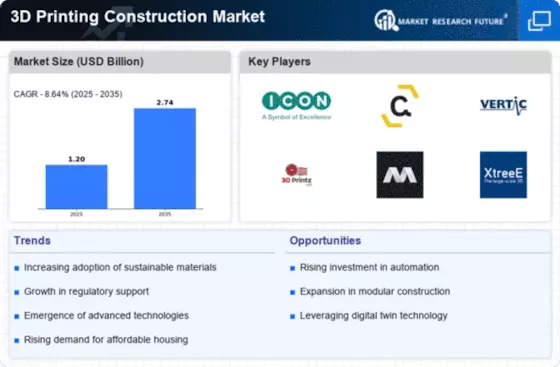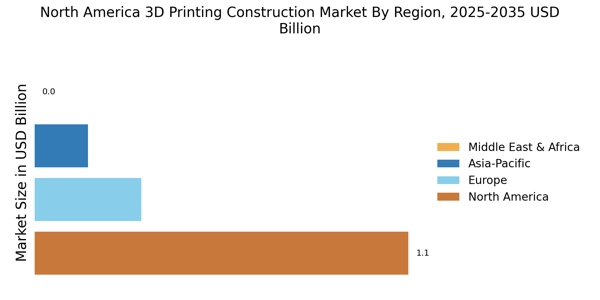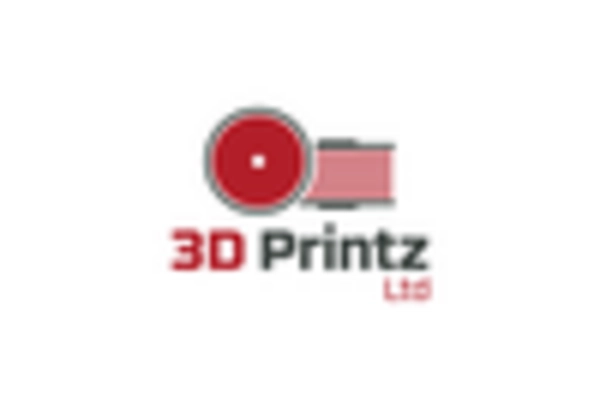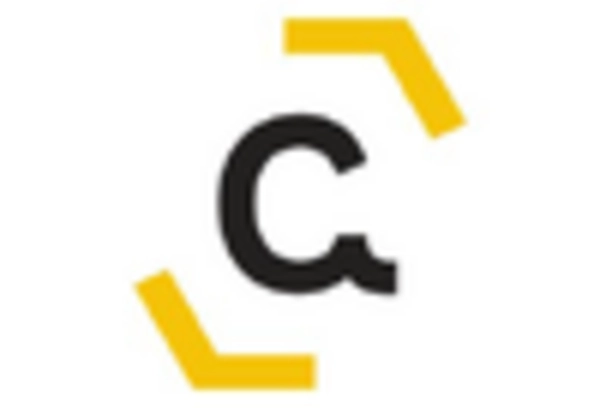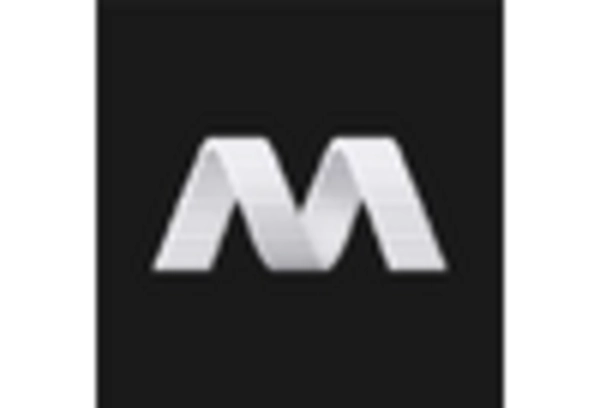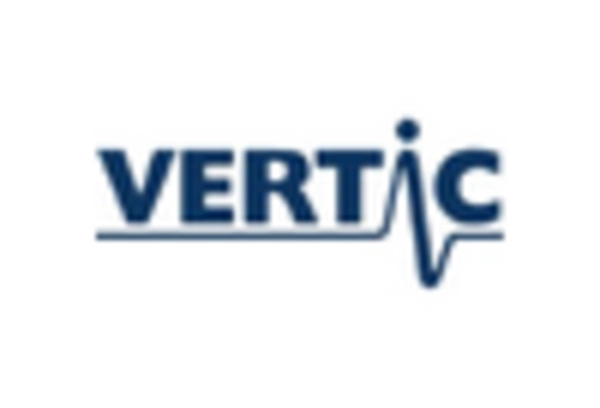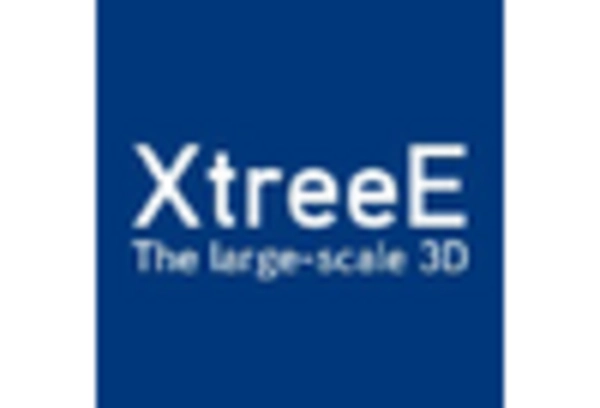The 3D Printing Construction Market is currently characterized by a dynamic competitive landscape, driven by technological advancements and increasing demand for sustainable building solutions. Key players such as ICON (US), Apis Cor (US), and Mighty Buildings (US) are at the forefront, each adopting distinct strategies to enhance their market positioning. ICON (US) focuses on innovation through its advanced construction technologies, aiming to reduce costs and construction time. Apis Cor (US) emphasizes regional expansion, having recently established partnerships to broaden its operational footprint. Meanwhile, Mighty Buildings (US) is leveraging digital transformation to streamline its production processes, thereby enhancing efficiency and product quality. Collectively, these strategies contribute to a moderately fragmented market structure, where competition is intensifying as companies seek to differentiate themselves through technological prowess and operational excellence.
In terms of business tactics, companies are increasingly localizing manufacturing to mitigate supply chain disruptions and optimize logistics. This approach not only reduces costs but also enhances responsiveness to local market demands. The competitive structure of the market remains moderately fragmented, with several key players exerting influence through innovative practices and strategic collaborations. The collective efforts of these companies are shaping a landscape where agility and adaptability are paramount, allowing them to respond effectively to evolving consumer preferences and regulatory requirements.
In December 2025, ICON (US) announced a strategic partnership with a leading materials science company to develop new sustainable building materials tailored for 3D printing applications. This collaboration is poised to enhance ICON's product offerings, enabling the company to meet the growing demand for eco-friendly construction solutions. The strategic importance of this move lies in its potential to position ICON as a leader in sustainable construction, aligning with global trends towards environmental responsibility.
In November 2025, Apis Cor (US) successfully completed a pilot project in collaboration with a municipal government, showcasing its ability to construct affordable housing using 3D printing technology. This initiative not only demonstrates the feasibility of large-scale 3D printing in urban settings but also highlights Apis Cor's commitment to addressing housing shortages. The significance of this project is underscored by its potential to attract further investments and partnerships, thereby solidifying Apis Cor's market presence.
In October 2025, Mighty Buildings (US) unveiled a new line of 3D-printed homes that incorporate smart technology for energy efficiency. This launch reflects the company's focus on integrating advanced technologies into its construction processes, catering to the increasing consumer demand for smart homes. The strategic importance of this development lies in its ability to differentiate Mighty Buildings in a competitive market, appealing to environmentally conscious consumers seeking innovative housing solutions.
As of January 2026, current competitive trends in the 3D Printing Construction Market are increasingly defined by digitalization, sustainability, and the integration of artificial intelligence (AI) into construction processes. Strategic alliances are becoming more prevalent, as companies recognize the value of collaboration in enhancing their technological capabilities and market reach. Looking ahead, competitive differentiation is likely to evolve from traditional price-based competition towards a focus on innovation, technological advancement, and supply chain reliability. This shift underscores the importance of adaptability and forward-thinking strategies in navigating the complexities of the modern construction landscape.


